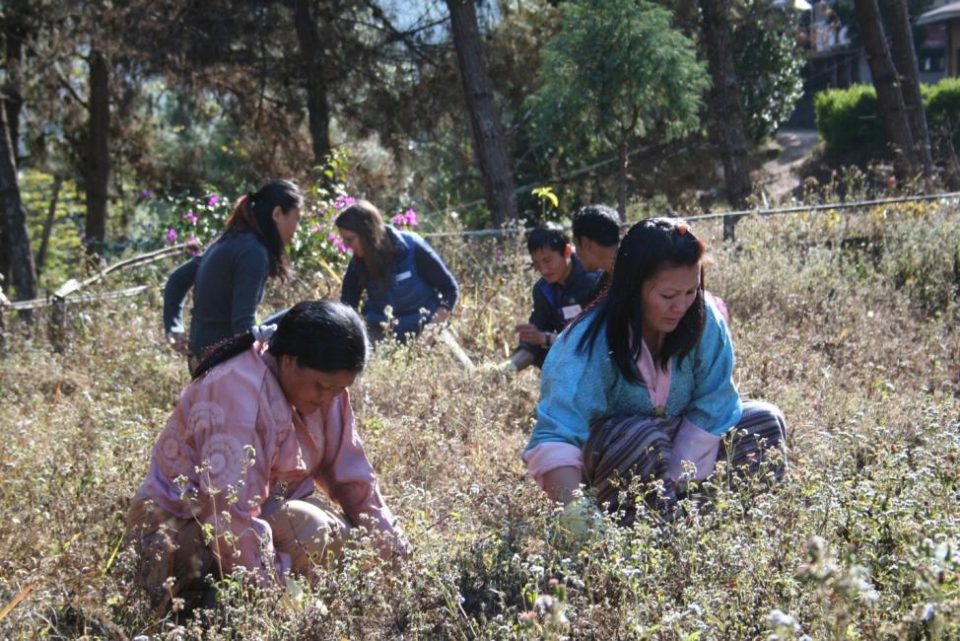
The past two days, workshop participants, Leslie and I have really been ‘digging’ into connecting with this place this place, Damphu, Bhutan, literally and figuratively. The service learning project was kicked off with exploration stations, or what is referred to as a group circus here, where participants created a species account, examined seed dispersal mechanisms of local plants, practiced using a dichotomous key to identify local flowers and explored the difference between weed, domestic, invasive and endemic species. Teachers currently participate in community service projects with their students, such as community clean-ups that are a part of waste management awareness programs and ‘adopting a river’. In the last station, teachers were called to explore how community service projects can be enriched through service learning. After the e-stations, we got our hands in the dirt! The schools’ biological garden area is used for teaching students about plants, and at this time of year is overgrown with Bidens pilosa, an introduced species from the Americas, Oxalis species and several other common weeds. While the majority of us prepared the area for spring time planting, others found creative and innovative ways to build and fix the fence using local materials from the school grounds. The biological garden area was completely transformed after forty-five minutes, while we laughed, talked and connected with one another!
During the community resource tour, teachers interviewed representatives from the forest, environment, agricultural, health and roads departments, as well as the local monastery. From this exercise, insight was gained into local issues such as low soil fertility, landslides, non-communicative diseases and high dropout rates in the monastery school. Several of the interviewed representatives never worked with the schools before and welcomed the opportunity to do so. Teachers reflected on opportunities for partnering with these and/or other resources in their schools communities.
In addition to these action packed days, we explored the process of Appreciative Inquiry (AI). Both the Ministry of Education and Royal University of Bhutan are interested in integrating AI in their teams, departments and curriculum. Appreciation and place-based education (PBE) connect directly to the four pillars (Conservation of the Environment, Sustainable Development, Good Governance and Preservation of Culture) of Gross National Happiness (GNH). Teachers explored these connections through Venn diagrams and discussions. Participants are ready for us to model specific lessons from their science and social studies curriculum using PBE, which is next up on the agenda. The workshop is rich, innovating, and as one participant said, “you never know what is going to come next”!




